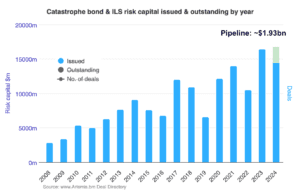Toyota and Lexus recall Tundra trucks and LX 600 SUVs over potential engine failure

Toyota will recall over 100,000 SUVs and pickup trucks in the U.S. over debris in the engine potentially causing it to stall. According to the National Highway Traffic Safety Administration, the recall includes certain Toyota Tundra pickup trucks and Lexus LX 600 SUVs built in 2022 and 2023 and equipped with the Japanese automaker’s V35A six-cylinder engine.
According to documentation posted by NHTSA, debris that wasn’t properly cleaned out during the manufacturing process may contaminate the engine and cause the main bearings to fail. Such failure is catastrophic to an engine. Toyota’s own internal documentation provides a bit more detail.
“The subject vehicles are equipped with a specific V35A engine that contains crankshaft main bearings which allow the crankshaft to rotate within the engine assembly while running. During a specific production period, there is a possibility that engine machining debris of a particular size and amount may not have been cleared from the engine during manufacturing and subsequently contaminated the engine assembly during the production process. For these engines in the subject vehicles, the pressure on the main bearings due to the engine configuration is such that, if the aforementioned machining debris adheres to the bearings and operation of the engine continues at higher loads over time, failure of the bearings may occur.”
A notice delivered to dealerships in the United States adds: “In the involved vehicles, this can lead to potential engine knocking, engine rough running, engine no start and/or a loss of motive power. A loss of motive power while driving at higher speeds can increase the risk of a crash.”
Toyota first realized there was a problem in June, 2022, after examining two pickup trucks with seized engines. The automaker’s technicians hypothesized at that point the damage was due to debris in the engine, but continued dissecting and analyzing engines through May, 2024. First, to reduce the possibility of engine contamination during manufacturing, Toyota implemented cleanliness process changes at its engine manufacturing plants.
“As of May 20, 2024, based on a diligent review of records, Toyota’s best engineering judgement is that there are 166 Toyota Field Technical Reports and 824 warranty claims on the engines in the subject vehicles that have been received from U.S. sources that relate or may relate to this condition and which were considered in the decision to submit this report,” according to Toyota’s documentation.
Toyota is still “developing a remedy” to fix owners’ trucks and SUVs that may be affected by the problem. The automaker will reimburse owners who already paid to have their vehicles repaired, adding that all of this recall work will be performed at no cost to the vehicle owners.




